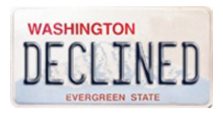 One of the most frustrating aspects of modern day borrowing, especially in the heavily securitized U.S. home loan market, is the price you pay for not being “normal.” I faced this for more than two decades as a business owner. Even with a 20-year track record in business and great personal credit scores, without that regular paycheck and W-2 documentation, it was maddeningly hard to get a new mortgage, refi, or even a car loan or credit card sometimes.
One of the most frustrating aspects of modern day borrowing, especially in the heavily securitized U.S. home loan market, is the price you pay for not being “normal.” I faced this for more than two decades as a business owner. Even with a 20-year track record in business and great personal credit scores, without that regular paycheck and W-2 documentation, it was maddeningly hard to get a new mortgage, refi, or even a car loan or credit card sometimes.
But having worked on the other side, I understand that certain groups, such as small business owners, pose higher risk. So it’s understandable that underwriting, pricing, and documentation requirements for new customers are more onerous. The extra paperwork may be frustrating, but business owners understand risk vs. return, and can come to terms with it.
However, there is another situation that makes customers pull out their hair, rant on social media, and tell their friends to avoid that bank. It’s when you’ve been a customer for years, even decades, but your lender decides you should be in a higher-risk group, even though you’ve done nothing risky. There is a classic example of this in the Wall Street Journal today. It tells the tale of a Seattle couple who are renting a cottage behind their primary residence in a completely legal and transparent way. And when they mentioned this seemingly great $30,000 improvement to their income in a home-equity loan-refi app, their bank, one of the largest in the United States, promptly turned them away saying it didn’t offer home-equity loans on properties with home-based businesses.
Certainly, the bank can make the business decision not to lend to any category where it doesn’t like the overall risk vs. return. But their underwriting should be flexible enough to look at an existing loan that’s in good standing, and realize that if the borrower is pulling in an extra $30,000 from AirBnB, the default risk on that loan has been lowered.
 The bank isn’t commenting on this particular loan application, so we don’t know if there are other extenuating circumstances. Perhaps the couple had a debt go into collection or other credit problems. But since I’ve personally run into similar problems while maintaining excellent credit, I believe the couple’s story is probably accurate.
The bank isn’t commenting on this particular loan application, so we don’t know if there are other extenuating circumstances. Perhaps the couple had a debt go into collection or other credit problems. But since I’ve personally run into similar problems while maintaining excellent credit, I believe the couple’s story is probably accurate.
Bottom line: One bank’s loss is often another’s gain. This story had a happy ending as the couple was able to refinance through super community bank Umpqua. Now that its win has been immortalized by the national press, expect Umpqua to feature this story throughout its market.